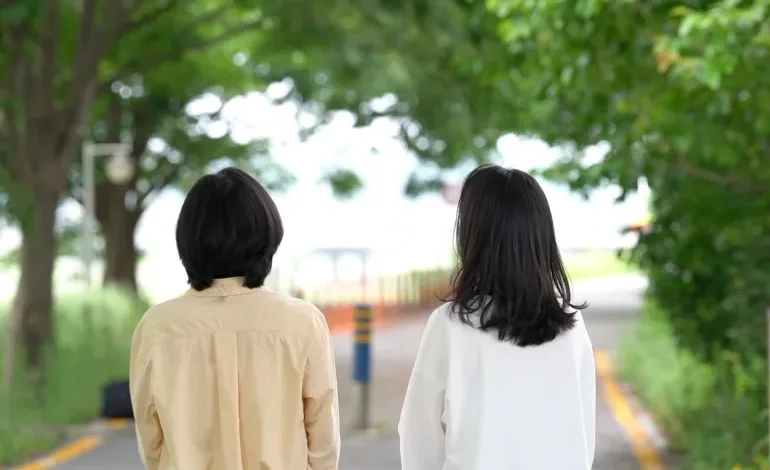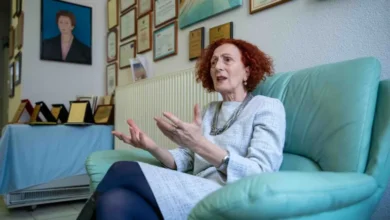The South Korean woman who adopted her best friend

Most mornings, Eun Seo-Ran begins her day at around 7am by brewing tea for herself and her adopted daughter Lee Eo-Rie*. After a cup of black or herbal tea the two work in separate rooms – Seo-Ran as an essayist, while Eo-Rie studies for an exam. Around noon, they cook lunch, then sit down to eat and watch their favourite comedy series. Soon, the sound of them giggling fills the living room of their three-bedroom apartment. Outside, green cabbage fields stretch for miles.
In the evening, the two eat dinner, and then do the household chores. On clear nights, the silhouette of a mountain gleams in the distance as they practise yoga before bed, chatting about friends and work, and winding up another day in their quiet lives.
“Our lives have become inseparable over the years … Eo-Rie probably knows me better than anyone else in the world,” says Seo-Ran, a slight, soft-spoken woman, from their home in the southwestern region of Jeolla.
Despite being her adopted daughter, Eo-Rie is 38 – just five years younger than 43-year-old Seo-Ran. The women have been best friends and roommates for seven years. Last May, Seo-Ran adopted Eo-Rie in a desperate bid to become family under South Korea’s strict family law. By law, only those related by blood, marriage between a man and a woman, and adoption are recognised as family.
Strict gender roles and patriarchal family culture remain deeply ingrained in South Korea. But in recent years, more South Koreans have started to challenge these norms. They are increasingly pushing the government to accept a broader range of companionships as family, such as unmarried couples or friends living together, and demanding rights and services available to conventional family units. Women are often at the forefront of this push with a growing number of so-called “no-marriage women” choosing to stay single, defying the traditional pressure to marry, and look after a family.
The story of how Seo-Ran and Eo-Rie became family represents this desire to challenge—and reimagine—what it means to be family in South Korea.
‘My mum toiled for decades’
Seo-Ran grew up near Seoul in a middle-class family with a working father, a stay-at-home mother and an older brother – a nuclear household that by then had replaced the traditional multi-generational home. But despite the rapid shift in family structure, customs embedded within it changed more slowly.
Women were still largely expected to quit their jobs upon marriage and become lifelong caregivers for their in-laws. Placed at the bottom of the pecking order in their husbands’ families, they were usually relegated to the kitchen during family gatherings, including ancient rituals to honour dead ancestors. Called “jesa” or “charye”, the ritual is observed during the Chuseok harvest festival, the Lunar New Year and on dead relatives’ birthdays and women are expected to prepare food for days. The custom is so resented by many women that the number of divorces rises after every traditional holiday.
“My mum toiled for decades to serve my father’s family, including making countless jesa preparations each year. But my father is a very patriarchal person, and never showed any gratitude for what she did for his family,” Seo-Ran reflects.
“Having watched all of this, I’ve never had a fantasy about marriage – or having the so-called ‘normal family’,” she explains. Her mother, hoping Seo-Ran would live differently, wouldn’t even let her into the kitchen while she was growing up.










